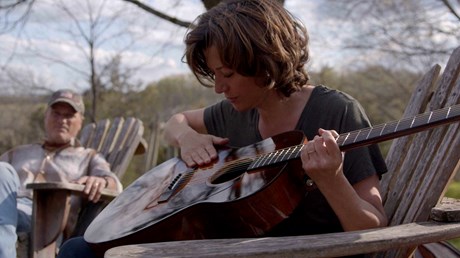But like the CCM industry, it speaks an insider language.

I have a memory of being five or six years old and helping my mom prepare for a party with Amy Grant’s album Heart in Motion playing in the background. I knew (and still know) all the words to “Baby, Baby” and “Good for Me.” When I got married, my three sisters sang a parody of her song, “Lucky One” at the reception.
I know every song on Steven Curtis Chapman’s Speechless by heart. I saw DC Talk in concert at eight, tagging along with a friend whose parents led youth group. In high school, I worked in the music department of a Christian book store.
In other words, I grew up on Christian Contemporary Music (CCM).
The Jesus Music, a new film directed by Jon and Andrew Erwin about the rise of the genre, was made for me and for people like me—whose musical and spiritual worlds were formed and influenced by the music, musicians, and subculture of CCM. I enjoyed revisiting the music my parents and I played on repeat during the ’80s and ’90s, and I suspect that many viewers like me will as well. Viewers like me.
“This music,” musician Joel Smallbone (of the band For King & Country) says in the opening line of the trailer, “offers people a sense of hope and a sense of togetherness and a sense of joy, maybe that they’ve not experienced.”
That’s a sweeping claim, one echoed on the film’s website, which refers to the “universal power of music from these artists.”
Is this music really for anyone and everyone? Can everyone find in it a sense of hope, joy, or togetherness? No. Music isn’t a universal language, and the music featured in The Jesus Music comes from a brief fifty-year window and a small group of artists ...
from Christianity Today Magazine
via


.gif)

.gif)
.gif)
